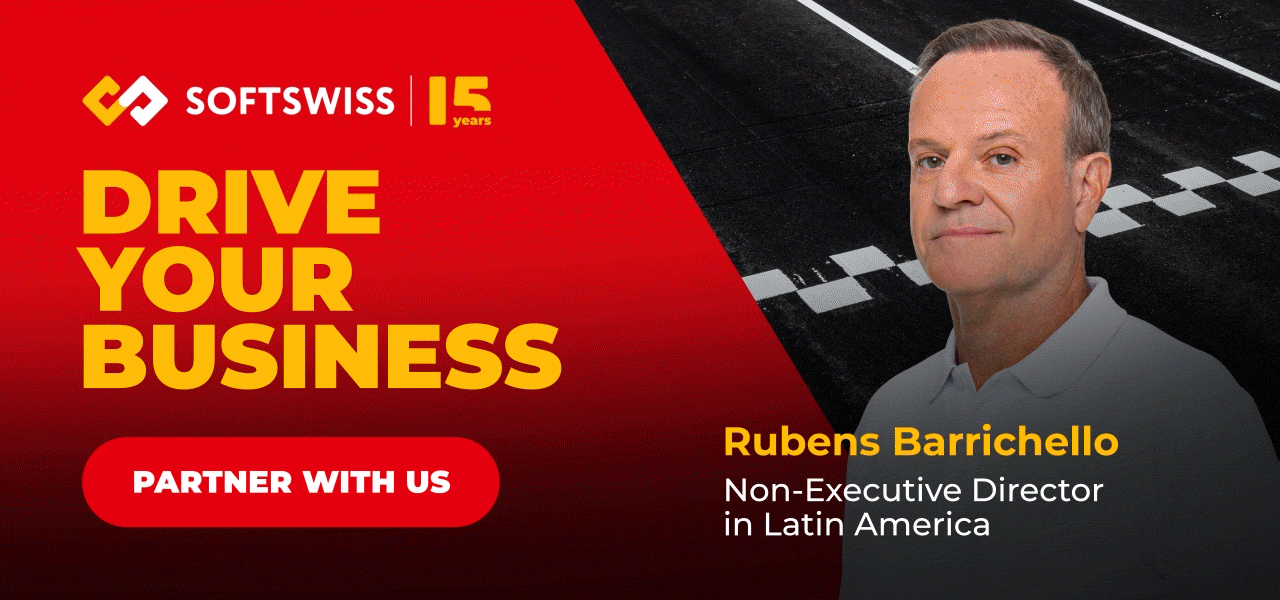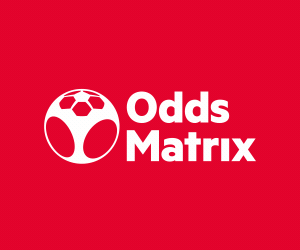Eastern Europe
Lack Of Professional Approach To Legalization Of Gambling

The necessity of legalization of gambling in Ukraine has been the topic of interest for a long time. The new government, at the initiative of President Zelensky, has been trying to do this for almost a year now. Experts gave hundreds of comments about this process, journalists wrote dozens of articles, and deputies held many meetings of various working groups. In general, the relevant bill has undergone a number of changes and for a long time has been evolving step by step to an increasingly acceptable form: the general opinion of the market is that the law should be the same for everyone, everyone is ready to certain compromises, and even a high fixed cost of licenses is considered acceptable when the tax on gross gaming revenue (GGR) is abolished. But today the improvement of the bill hit up against the interests of the lottery pool of deputies, who are trying in every possible way to maintain the monopoly position of the lotteries and the associated gray schemes of work of other types of gambling. For this reason, the bill 2258-d on second reading runs the risk of entering the session hall with a number of fundamental problems that will simply nullify the positive effect of the legalization of gambling in Ukraine.
The motivation of the deputies from the lottery circle is obvious, they simply work off the corrupt rent of their patrons. But the motives of the deputies close to President Zelensky are not clear. In case of collapse of legalization or failure to get the expected results, this initiative will turn into a pile of stones that will be thrown at the President by both the opposition and other enemies without hesitation. Especially considering the fact that the President took this issue under his personal control.
Two main factors have caused the current unfavorable situation regarding the legalization of gambling in Ukraine: 1) the subjectivity of certain influence groups (strongly represented by the lottery pool of deputies), and 2) an exclusively theoretical understanding of the mechanism of work and specific features of the gambling business, which can be observed in the statements made by the head of the relevant committee, Daniil Getmantsev. Thus, instead of a broad discussion with future gambling operators, which could contribute to the development of a realistic draft law, we get a substitute for lottery “wishlist”, and an ordinary incompetence.
It will take more than one article to describe all the mistakes of legalization of gambling “in the Ukrainian style”. But nevertheless, the most striking moments can be singled out, without the resolution of which all the previous work will go down the drain.
So, the biggest problem is that the work on the relevant law is carried out without regulating the tax aspect of the organization of gambling. This approach may result in gambling operators paying taxes of 50-60% of profits for doing business legally. In this case, legalization will remain only on paper, as well as the long-awaited income to the treasury. Therefore, it is now extremely important to start a broad discussion on the tax burden for the gambling business. Since the budget of Ukraine needs fast money, and setting up an online monitoring system to track gross gaming revenue (GGR) requires considerable amount of time and specialist training, it would be logical to keep high license fees, but abolish the GGR tax. To understand the numbers, we want to remind you that for one license for 5 years, gambling operators in Ukraine will have to pay (ed. – take into account currency rate fluctuations): a casino – from $5.8 million to $20 million, depending on the number of rooms in the hotel; bookmakers – more than $21 million; lottery distributors – $14.7 million; gambling rooms – $145 thousand; online casinos – $2.4 million. At the same time, legislators plan to establish the GGR tax in the range of 18-25%, in spite of the bill 2713-3, which abolishes the tax on gross gaming revenue (GGR).
In general, world experience provides a choice between two options – either a high license fee or a GGR tax. More precisely, with a GGR tax a license fee may be levied, but then its amount is set at a very low level. In fact, a high fixed license fee is a tax on gross revenue paid in advance. Here are some examples from world experience.
In Britain, for example, a one-time fee for applying for a gambling license is €5,730, and a staff/ management license is about £330. The head of a gambling establishment is also obliged to pay an annual fee to ensure that his current license continues to be valid. The annual license fee depends on the gross turnover of the company. Gambling in England is subject to two taxes: 15% tax on total gaming revenue, and 18% income tax.
In the Netherlands, taxation on the organization and conduct of gambling is also quite high. Casino operators must pay a 29-percent gross revenue tax on games. In addition, they must also contribute 1.5% to the development of the gambling association and 0.25% to the fund against drug addiction.
Swedish casinos are obliged to pay a tax of 18% of their total gaming revenue. For doing business in the country you also need to purchase a license. It can cost from 6 to 70 thousand euros.
In Malta, the gaming tax makes up 5% of the revenue generated from certain gaming services during the relevant tax period. The tax on gaming devices in Malta varies from 12.5% to 30% for different types of licenses. Malta gambling management requires a company applying for a gaming service license to have a minimum share capital from 40 thousand euros to 100 thousand euros, depending on the type of gambling establishment in terms of profitability.
In France, the rules for calculating tax rates are as follows: the gambling turnover tax is 8.5%, and income tax is additionally paid at the standard rate of 28%.
In addition to taxes, all casinos also pay certain fixed fees. So, the budgets of municipalities on a daily basis receive 12 euros from the first roulette that opens and 6 euros from each subsequent roulette that opens.
Thus, the tax on GGR is usually used in those countries where there is no license fee or it is symbolic. In most countries where gambling is legalized, the authorities understand that gambling brings sufficient revenues to the budget, but it requires an adequate tax base.
To introduce the GGR tax, an optimal monitoring system is needed. It shouldn’t be overloaded, the way our parliamentarians do this, striving to stuff everything possible and impossible into monitoring. This approach is an evidence of a superficial and purely theoretical knowledge of the authors of such ideas. For the GGR tax, the most important thing is to control the entry and exit of funds. For example, if 2 million UAH was brought during quarter, and 1.8 million UAH was given away as wins, then out of 200 thousand the GGR tax will be calculated. Everything is extremely simple. It is better to transmit information in the online monitoring system in non-personalized form and in a package, rather than in real time format and with all the data about the player, because otherwise, any halting will lead to an interruption in the operator’s work or to an unintentional violation of the law. But until such a simple and effective system is offered, it is better to use a high license rate and not charge the GGR tax.
If the gambling business is nipped in the bud, then the budget will not get any money. Therefore, the philosophy of the attitude to this type of business needs to be changed, it is necessary to create an adequate tax base and equal conditions for all operators. In response, the state will receive both substantial revenues to the budget and substantial amount of money for charity. Historically, gambling money goes to support social projects. For example, in France, theaters were built on taxes from the organizers of gambling establishments, and a famous opera house was built in Baden-Baden (Germany) on the tax revenues from the gambling industry. In the Netherlands, the representatives of the gambling industry sponsor the football championship, and in Canada – the annual stage of Formula 1 auto racing. In the USA, casinos finance basketball and hockey clubs.
In many countries, the distribution of tax revenues from the gambling business goes under special budget items. In Denmark, 65% goes directly to the Ministry of Culture and is directed to the development of sports and cultural life. In Finland, profits from lotteries and casinos are directed through the Ministry of Education to finance the development of national culture, and state revenues from betting on horse races are used to stimulate the development of national horse breeding and to conduct equestrian competitions.
For centuries, the authorities of various states have been convinced that human passions, including excitement, can’t be eradicated and prohibited, and therefore the only adequate solution is to find a reasonable compromise between the state, business and player. Many European countries have accepted such a philosophy a long time ago, and it’s time for Ukraine to finally take this path by creating a competitive market that will: a) be attractive to foreign investors; b) create hundreds of thousands of well-paid jobs, and c) replenish the budget with tax payments.
Eastern Europe
Amusnet Expands in Romania with LuckySeven Partnership

Amusnet, a leading gaming provider, proudly announces its partnership with the Romanian operator LuckySeven. The strategic alliance aims to strengthen Аmusnet’s market position and optimize its diverse portfolio, driving growth in the Romanian gaming sector.
“Partnering with Lucky Seven highlights our commitment to enrich the gaming landscape in Romania with a selection of our top-notch casino portfolio. It enables us to leverage their extensive market insights and customer engagement strategies, ensuring our games meet the evolving demands of players. Together, we will focus on creating tailored gaming experiences and foster a strong sense of community among local players,” shared Stefan Folea, Account Manager at Amusnet Romania.
“Our company is built on delivering first-class entertainment, and working with providers of Amusnet’s calibre is essential for reaching new standards in the iGaming industry. Amusnet is easily one of the industry’s leading content providers, so we’re thrilled to be able to bring their games to our players. Most iGaming enthusiasts are already familiar with Amusnet’s titles, and we know the upcoming addition of its content will come with a great response from our players, ” said Pintrijel Ana, CEO of Lucky Seven Romania.
Eastern Europe
Eugene Ravdin Discusses Content Creation and Digital Brand Authority at EEGS Webinar

The Eastern European Gaming Summit (EEGS) hosted a compelling webinar featuring Eugene Ravdin, a leading expert in content creation and digital brand marketing. With extensive experience in content for platforms like UEFA.com and his current role at MightyTips, Ravdin shared valuable strategies for building digital brand authority, especially in light of recent changes to Google’s algorithms.
Ravdin emphasized the growing importance of creating meaningful content that aligns with a brand’s identity and values. “Your brand should be connected with your audience,” he stressed. He highlighted how his approach at UEFA focused on consistently delivering unique and relevant content without over-reliance on technical SEO, demonstrating the value of high-quality material in building audience engagement. By sharing examples from his work at MightyTips, he illustrated how content strategies can enhance brand presence and credibility, even without keyword-heavy approaches.
A key focus of the webinar was on the necessity of adapting content to different platforms and audiences. “Adapt your content for your customers, otherwise they will not feel like you belong to them,” Ravdin advised. He underscored the importance of tailoring content formats and styles based on the demographics and expectations of users on various platforms such as TikTok, Instagram, podcasts, and blogs. He also discussed localization challenges, stressing the need for precise language adaptation and the use of trusted native content creators: “If you think about localization—have a trusted native editor,” Ravdin recommended, emphasizing accuracy and consistency across markets.
Ravdin also touched on the increasing popularity of podcasts, offering practical advice on how to effectively plan and execute this format to engage audiences while maintaining consistency and content quality. “After you create trust and loyalty, you create engagement,” he added. His expertise provided attendees with actionable insights into leveraging content to strengthen digital brand authority, drive engagement, and adapt to the ever-changing digital landscape.
All attendees of the EEGS Webinar received a Certificate of Masterclass Completion, recognizing their commitment to advancing knowledge in the gaming industry.
You can watch the entire webinar here: https://youtube.com/eegamingsummit
Eastern Europe
TotoGaming partners with CFR CLUJ

Champions Unite to Walk the Path to Perfection Together
TotoGaming, which entered the Romanian market in January 2024, has announced a partnership with CFR Cluj, the eight-time Romanian football champions. This agreement will span two competitive seasons, starting with the 2024/25 season.
The goal? To create even more spectacular, inspiring football.
This is not TotoGaming’s first collaboration with football clubs; the brand, with a 20-year history in Armenia, has sponsored five Armenian football clubs. However, this marks its first partnership in Romanian sports.
“This collaboration was anticipated. Supporting the development of sports and promoting a healthy lifestyle have been core principles of TotoGaming from the beginning. CFR Cluj exemplifies these championship values. The club, with its 100-year history, knows what it takes to become a champion,” said Harutyun Vardanyan, CEO of TotoGaming.
CFR Cluj and TotoGaming have the same destination: both in sports and in life, each day begins with a champion’s commitment to embrace challenges and pursue victory.
-

 Industry News7 days ago
Industry News7 days agoRegistration opens as ‘Nuevos Horizontes’ unveiled as creative theme for Barcelona-bound iGB Affiliate
-

 Compliance Updates6 days ago
Compliance Updates6 days agoEU Tightens the Reins: New Gambling Regulations Shake Up the Industry
-

 eSports6 days ago
eSports6 days agoEverything You Need To Know: Red Bull Wololo Kicks Off Tomorrow!
-

 Industry News6 days ago
Industry News6 days agoBC.GAME Launches $BC Mining Rush
-

 Industry News6 days ago
Industry News6 days agoRickard Vikström, CEO & Founder of Internet Vikings, Honored in Emerging Leaders of Gaming 40 Under 40 List
-

 eSports6 days ago
eSports6 days agoMax Verstappen to attend GAMERGY, the world’s largest esports, gaming and entertainment event
-

 Latest News6 days ago
Latest News6 days agoJekaterina Dubnicka to Head of Marketing and Communications
-

 Balkans6 days ago
Balkans6 days agoSportingtech Opens New Office in Sofia


















































